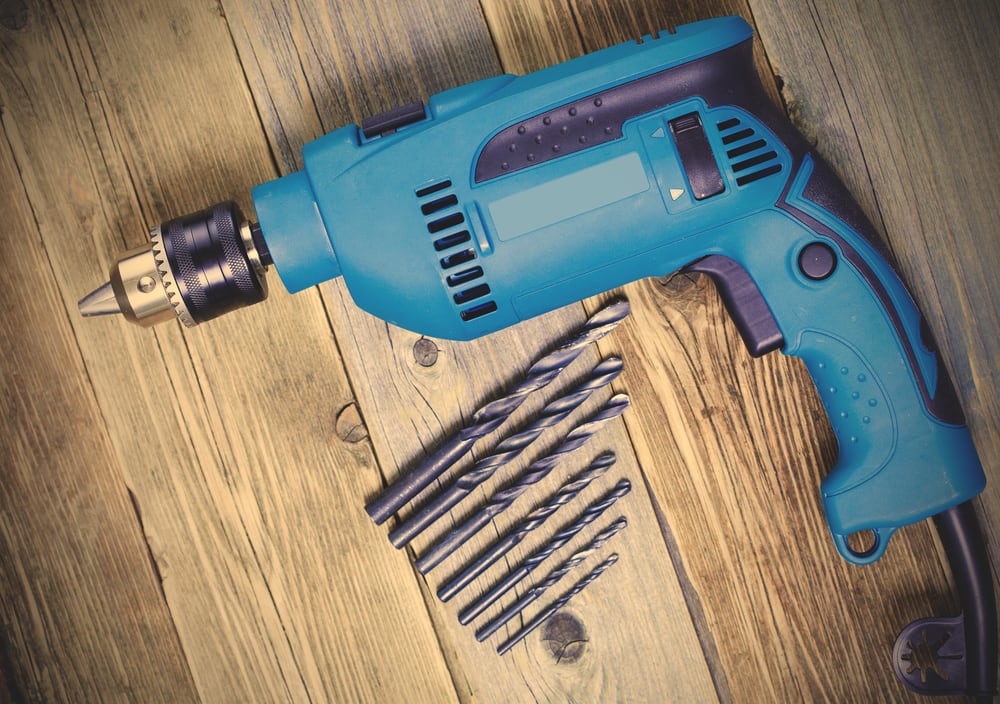

No matter what kinds of automotive technician jobs you tend to work, it takes the right power tools to do them correctly. This often begs the question “should I buy electric automotive power tools?” Before we answer that, let’s take a look at the pros and cons of these tools and an alternative.
The case for electric automotive power tools
Let’s begin with the challenger: electric power tools. These are far from a new form, though. Electric power tools are the norm in most people’s garages and throughout their homes. They’re handy, especially when they come with a power pack, yet still plenty powerful too.
They’re also extremely user-friendly. All you have to do is either plug them in or ensure the power pack is attached and you can begin using these tools. There is literally no waiting when you’re using electric tools.
This is especially beneficial for those of you working auto mechanic jobs at a garage or dealership that is typically very busy. One person can put a drill down and another pick it up and begin working right away. You won’t have to worry about some kind of line forming and the entire operation slowing because of it.
Mobile mechanics love them too because it’s easy to take these tools on the road. There’s no need for access to a pneumatic air compressor which is awkward to move around.
The downside of using electric automotive tools
That being said, electric automotive tools – popular though they may be – are not without their drawbacks. One is simply that they tend to cost more than the alternative. Depending on the size of your business, you may find that you need a number of them too, which can quickly add up.
You’re also going to need plenty of electricity. This is why corded electric automotive power tools are really no longer an option. Aside from what a hazard it would be to have all those cords all over the place, you’d most likely run out of outlet space pretty quickly too. Power packs still need to charge, though, which will also take up outlet space. Still, those won’t last through the course of a whole workday, which means you’ll need extra power tools already charged (unfortunately, that will add to your budget).
The alternative: pneumatic tools
Air-powered – or “pneumatic” – tools are definitely worth considering too. For all intents and purposes, the end result is going to be the same in terms of what the tool does. That’s not going to be affected. However, pneumatic tools tend to be better for jobs that require a lot of torque or power. Most electric automotive power tools will be fine for the majority of work you do, but you could find that there is a breaking point.
Despite how much power they can pack, these tools are also a lot lighter. When you’re using these tools day after day, that’s no trivial thing. Fatigue can become a real problem so having lighter tools helps. They’re also smaller. You’ll have an easier time reaching various parts of an automobile without having to remove parts that are in your way.
The arguments against using pneumatic tools
These tools aren’t perfect either. For one thing, air compressors can be expensive. You can try buying secondhand versions, but you’ll need to be incredibly careful to make sure you’re not paying for one that actually has a leak or some other problem.
Although you should work to maintain your electric power tools, you won’t need the same schedule necessary for looking after an air compressor. Otherwise, your investment will soon sour and your shop will be without the tools required for helping customers. Even low-end models that work without the use of oil need regular maintenance.
There is no “portable” version of a pneumatic tool either. The actual tools may be smaller and lighter, but they need air to work which requires you run a hose. These hoses have to be quality too as cheaper ones almost always leak. Just like with running cords, having these hoses all over the floor can be a safety hazard so people will need to be careful.
So what’s the verdict? If you’re looking for tools to use in your own garage, electric probably makes the most sense. You can take these tools indoors too. At a professional garage, some combination of the two would probably be best. You can’t escape the need for pneumatic tools, but the electric models are still helpful.
If you’re a certified mechanic and you’re interested in working with YourMechanic, submit an online application for an opportunity to become a mobile mechanic.



